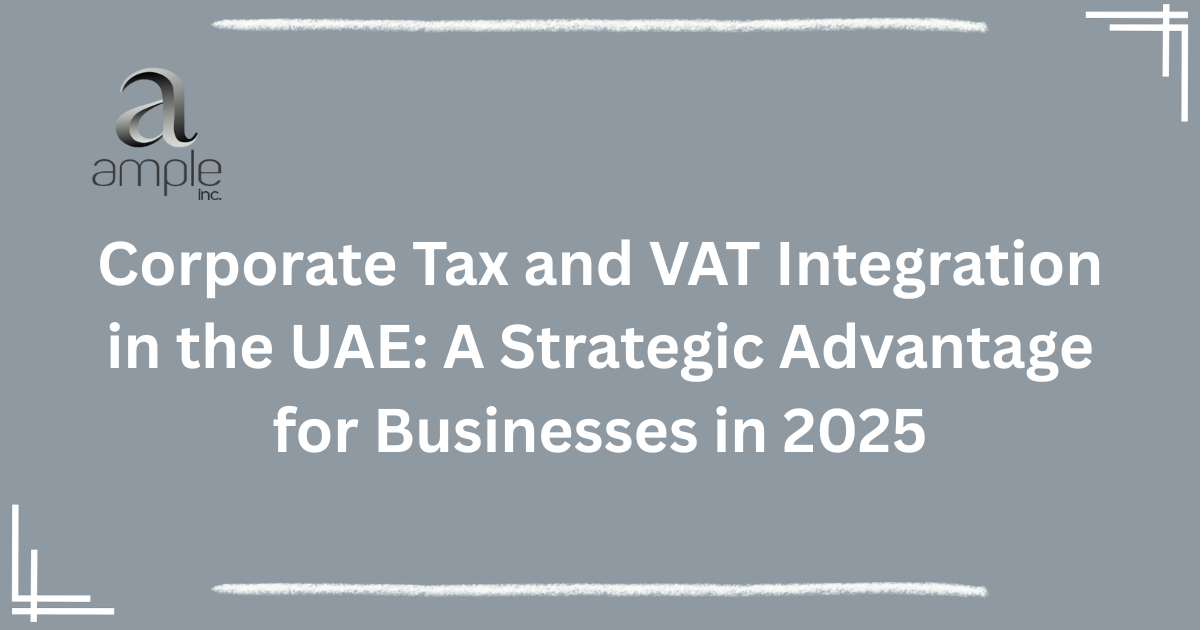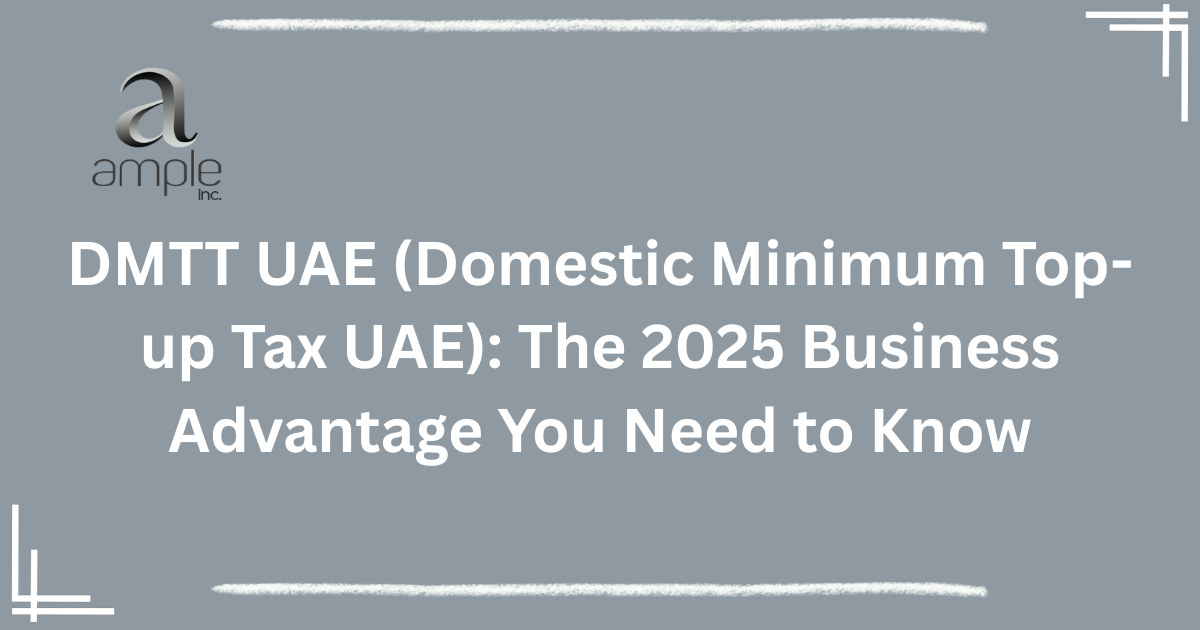Introduction to Corporate Tax in UAE
The United Arab Emirates (UAE) has long been recognized as a global hub for commerce and entrepreneurship, attracting businesses from around the world with its tax-free zones, strategic location, world-class infrastructure, and business-friendly regulations. For decades, companies and investors have chosen the UAE as their preferred destination to establish operations due to its minimal taxation environment and supportive government policies aimed at stimulating growth and innovation.
However, in response to evolving global tax frameworks and to align with international standards set by the Organisation for Economic Co-operation and Development (OECD), the UAE has introduced major changes to its tax landscape. Starting from 2025, the government has implemented a new Corporate Tax in UAE that affects a wide range of businesses operating within the country. Under this law, a 9% federal corporate tax is now levied on annual taxable business profits exceeding AED 375,000.
This move is part of the UAE’s efforts to diversify its revenue streams, enhance transparency, and reinforce its commitment to global tax compliance standards.
In addition to the standard corporate tax rate, the UAE has also adopted a 15% Domestic Minimum Top-Up Tax (DMTT) aimed specifically at large multinational enterprises (MNEs). This policy targets companies with consolidated global revenues of at least €750 million and ensures that these organizations pay a minimum level of tax in the UAE, consistent with the OECD’s Pillar Two guidelines under the Base Erosion and Profit Shifting (BEPS) initiative.
Recognizing the adjustment period businesses may need to comply with the Corporate Tax in UAE, the Federal Tax Authority (FTA) has introduced a registration penalty relief initiative. This initiative offers a grace period during which eligible businesses can register for corporate tax and file their first tax return without facing administrative penalties.
These developments mark a significant shift in the UAE’s approach to taxation. While the country continues to uphold its reputation as an attractive destination for investment, it is now doing so within a more structured and globally-aligned tax framework. Businesses, especially those new to the region or unfamiliar with the UAE’s evolving tax laws, must act proactively to understand the new requirements, register in a timely manner, and implement strategies to remain compliant and competitive in this changing landscape.
Understanding Corporate Tax in UAE
1. Corporate Tax Rates in UAE
- 0%: For taxable income up to AED 375,000.
- 9%: For taxable income exceeding AED 375,000.
- 15% DMTT: Applicable to MNEs with consolidated global revenues of €750 million or more in at least two of the four financial years preceding the tax period.
2. Applicability of Corporate Tax in UAE
The corporate tax applies to:
- UAE-resident legal entities: Including LLCs, PSCs, and other entities incorporated in the UAE.
- Natural persons: Individuals conducting business activities in the UAE with annual revenues exceeding AED 1 million.
- Free zone entities: Subject to specific conditions and exemptions.
Step-by-Step Guide to Register for Corporate Tax in UAE
Step 1: Determine Eligibility
Assess whether your business meets the criteria for corporate tax registration in UAE:
- Legal entities: All UAE-resident companies must register.
- Natural persons: If annual business revenues exceed AED 1 million.
- Free zone entities: Must register but may benefit from specific exemptions.
Step 2: Gather Required Documents
Prepare the following documents for UAE corporate tax registration:
- Valid trade or business license.
- Passport and Emirates ID of the authorized signatory.
- Proof of authorization (e.g., Power of Attorney or Memorandum of Association).
- Accurate shareholding information.
- Financial statements for the relevant period.
Step 3: Register via EmaraTax Portal
The Federal Tax Authority (FTA) has streamlined the corporate tax registration process in UAE through the EmaraTax portal:
- Existing users: Log in to your EmaraTax account.
- New users: Create a new user profile.
- Initiate registration: Select the ‘Corporate Tax Registration’ option.
- Complete the application: Fill in the required information and upload the necessary documents.
- Submit: Review and submit your application.
Upon approval, you will receive a Corporate Tax Registration Number (TRN).
Corporate Tax in UAE: Registration Deadlines
The FTA has set specific deadlines based on the financial year:
| Financial Year Start | Registration Deadline | First Tax Return Due |
| January 1, 2024 | March 31, 2024 | June 30, 2025 |
| June 1, 2024 | August 31, 2024 | September 30, 2025 |
| July 1, 2024 | September 30, 2024 | October 31, 2025 |
| January 1, 2025 | March 31, 2025 | June 30, 2026 |
Failure to register within these deadlines may result in penalties
Penalties for Non-Compliance with Corporate Tax in UAE
Non-compliance with corporate tax regulations can lead to significant penalties:
- Late Registration: AED 10,000 fine.
- Failure to Submit Tax Return: AED 20,000 fine.
- Incorrect Tax Return: Up to 40% of unpaid tax.
- Missing Documentation: AED 5,000 fine.
Corporate Tax Relief Initiative in UAE
Recognizing the challenges businesses face, the UAE government has introduced a corporate tax registration penalty relief initiative:
- Eligibility: Businesses that missed the initial registration deadline.
- Grace Period: Seven months from the end of the first tax period to register and file the first corporate tax return without penalties.
- Objective: Encourage compliance while minimizing financial strain on SMEs and start-ups.
Domestic Minimum Top-Up Tax (DMTT) and UAE Corporate Tax
Effective January 1, 2025, the UAE has implemented a 15% DMTT for large MNEs:
- Applicability: MNEs with consolidated global revenues of €750 million or more.
- Purpose: Align with OECD’s Pillar Two framework to ensure a minimum global tax rate and prevent base erosion and profit shifting.
Future Corporate Tax Incentives in UAE
1. Research and Development (R&D) Tax Incentive
- Effective Date: Expected from January 1, 2026.
- Benefit: Refundable tax credit of 30–50% on eligible R&D expenditures.
2. High-Value Employment Incentive
- Effective Date: Proposed for January 1, 2025.
- Benefit: Refundable tax credit based on eligible salary costs for senior professionals and key personnel.
Conclusion: Embrace Corporate Tax in UAE with Confidence
The introduction of Corporate Tax in UAE in 2025 marks a major shift in the nation’s financial and regulatory framework. While it introduces new compliance challenges, it also opens doors to transparency, international alignment, and long-term economic sustainability.
Businesses must act early, stay informed, and utilize available tools such as the EmaraTax portal to streamline compliance. For tailored support, consult professionals specializing in corporate tax in the UAE.
If you need assistance with corporate tax registration or want to learn more about how we can help streamline your tax processes, visit our website at Ample Inc. Let us help you navigate the new tax landscape with confidence and ensure your business remains on track for success in the UAE.



